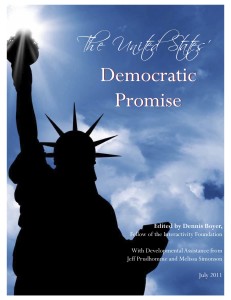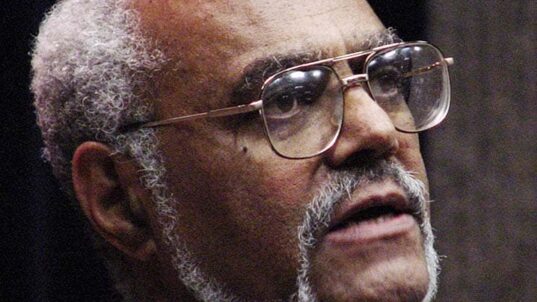It is often the case that public interest in IF discussion guidebooks waxes and wanes based on current events and media focus. So it probably should not come as any surprise that there has been a spike in website visits, downloads, and social media traffic concerning the discussion guidebook for The United States Democratic Promise project after the November 8, 2016 election.
We are not the only ones in the dialogue and deliberation field who have experienced this uptick in democratic practice and process concerns. The National Coalition for Dialogue and Deliberation (NCDD) has brought public conversation practitioners together to consider how to best serve the public in dealing with these concerns (see the post “Talking About . . . What’s Next After the Election“, from original post on the Living Room Conversations website).
After sharing impressions with a number of these practitioners, it appears that there are a number of distinct public conversational needs in this post-election environment. For some, the initial discussion is almost in the form of grief processing, dealing with the shock and surprise of unanticipated outcomes. For others there is a desire for more practical “what’s next” discussion of how to defend and promote various interests and objectives. In a number of cases the concerns focused specifically on voting process integrity. But it also appears there is a bit of an opening for consideration of how the United States conducts its democratic business. That is where the Democratic Promise guidebook has some application.
Prior public discussions of Democratic Promise suggest some limitations as a broadly accessible vehicle for citizen engagement. Reviews of these discussions suggest that the guidebook works best in groups with a foundation of understanding of the U.S. governance system. Without this foundation a facilitator of such a discussion can be drawn into explanations of Federalism, separation of powers, U.S. Constitutional law, and the multiple layers of election laws that apply across fifty states and thousands of local governments. At times it seems like an exercise in “civic education” is a necessary pre-condition to understanding where we are and where we might go. But without sufficient care discussion opportunities can disappear down rabbit-holes like the Electoral College and leave participants deflated.
A number of opportunities to use Democratic Promise as a starting point for post-election discussion presented themselves over the past month. Of these I selected five clusters of interest in the Upper Midwest (Iowa, Michigan, Minnesota, and Wisconsin) based on general agreement to discuss democratic practice and process concepts, not recent outcomes. Four of the opportunities involved face-to-face meetings (one of which I co-facilitated) and one was online. I felt that four of these discussions were “successful” to varying degrees (producing better understanding of the issues involved and/or laying a foundation for further discussion or action). One was completely unsuccessful and was broken up by disruptive participants.
The various groups proceeded with their discussions with their own approaches, discussed governance topics at different scales, and relied upon Democratic Promise to varying degrees. My sense of the main general lessons of these discussions is as follows:
- Dealing with recent political events (like the election) is hard to avoid. The groups that surmounted this difficulty best did so with preliminary informal “gripe” sessions before the meetings started. It was less successful to start with “we are not going to talk about the election” instructions.
- Groups with a pre-existing sense of democracy as dynamic and adaptive had an easier time imagining alternative ways to do the business of democracy than those seeing either it as “rules to be followed” or as a pervasively corrupt system.
- The groups that took their conceptual discussion and linked it to local institutions and examples seemed much more satisfied than those moved from the conceptual to Federal government examples (there, a looming sense of intractable problems prevailed).
- It also appeared that frustration increased whenever discussions drifted toward legal matters (court decisions and regulatory agencies) and that “values discussion” was a “stress reducer”. Discussions that started with explorations of values like “fairness”, “good government”, and “opportunity to participate” took participants away from a sense of pessimism.
Many of the above points may seem obvious upon reflection. But many of us can attest the application of such lessons is not yet widespread in governance discussion, where conflict generation seems more the rule than exploration of common ground.
The lessons here also seem to affirm IF President Jack Byrd’s emphasis on “exploratory scenarios” as a vehicle to open up participants to discussion of the conceptual. Use of hypotheticals or even loosely applied real-life case studies have the benefit of backing participants away from “who wins, who loses” immediacy. I came away from review of these discussions feeling that there was far more common ground achieved in contemplation “what do I believe” questions than in “who am I allied with” considerations.




